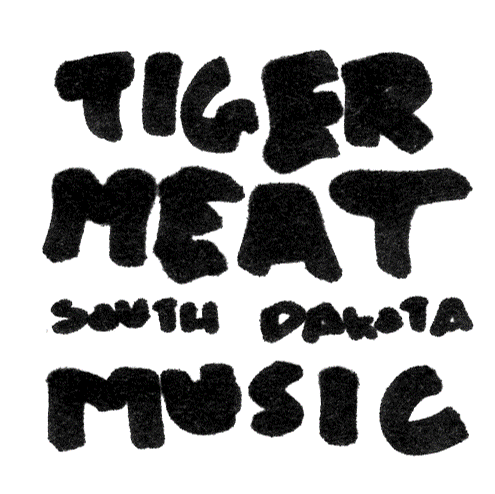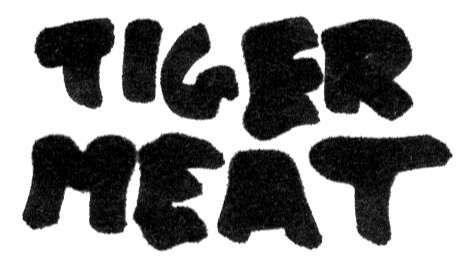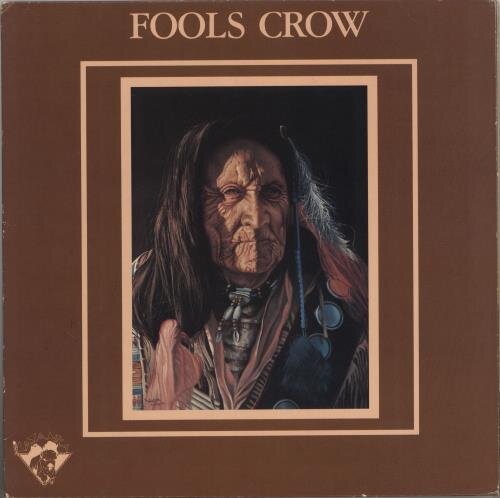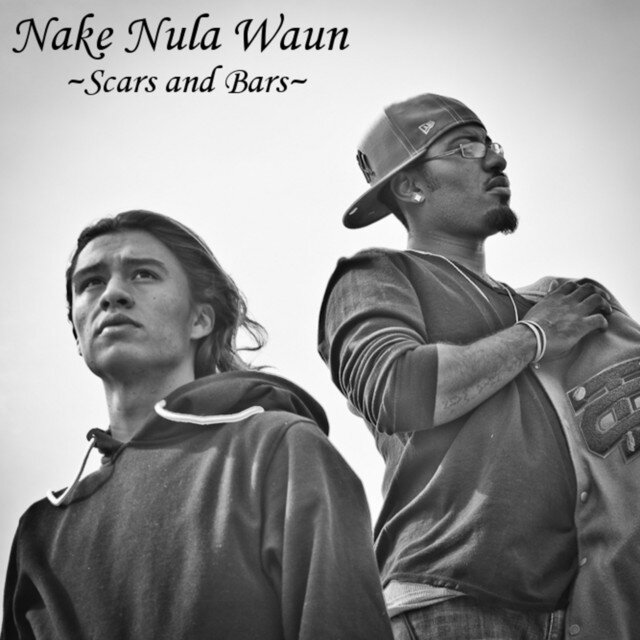Bazille
Traveling the Multiverse with Iktomi, Pt. 1: Coyote & Pt. 2: Owl
2020 | Hip Hop
- track 8: “Howl”
Talon Bazille ShootsTheEnemy/Ducheneaux: For me, this project is very spiritual, but not in the sense that it’s blind to reality. For those who don’t know Iktomi, Iktomi is the spider, the trickster in Oceti Sakowin belief and storytelling. He’s the person who teaches you what not to do, who shows you the opposite of what you’re supposed to be doing. There’s a lot of stories about him, and a lot of people who tell stories about him in that storytelling say “Nobody loves him. You’re not supposed to feel compassion for him or anything.” And I thought about that growing up a lot because I grew up amongst all of this negativity and Iktomi things. You know, whether it be in the elite places of the hierarchy, or the low, or even the middle, I have seen Iktomi in all of those walks of life, and I’ve learned to love and appreciate it for the power and medicine that it brings, but also the power of that lesson, and what it takes for people to create those lessons in this world for others to learn from. So that’s kind of what this album is, just with hip hop, through that lens because that’s how I grew up. That’s my way of expression.
The multiverse aspect really is about how, for me, coming up from the reservation, you know, I grew up in Eagle Butte, I grew up in Crow Creek, Bad Nation, and at the same time, my Dad was the first in the family to get a PhD so I had already experienced what college life was like and what his life as a clinical psychologist was. But then, you know, when things kind of got rough with our family, I then experienced more of the real things and why some of those early teachings he was showing me — then and throughout life — are so important because it is realism. These things are real to me and not just stories.
So for this music, for me, I’m putting in language like the multiverse, and space and these aesthetics of, I guess, magic and fantasy, but in reality it’s not. It’s very real. And what’s been interesting about releasing this project so far is, like, the experiences with Iktomi and Coyote since we recorded in Spokane. Over five days we recorded like 24, 26 songs. It was supposed to be just 12. For those five days we just couldn’t stop, and I took advantage of every second. But since then, while we were out there for the five days, Just Jamez, who is one of the main people in the project, one of his best friends died, like the second day. I told him, you know, just relax, chill out, be with yourself, but he knew the opportunity that we had and what First People’s Fund was giving us... he was that dedicated to work through it, and we prayed through it, we did a lot. Then I came back home and my dad’s calling me and he’s like, “You’ll never guess, you know, this coyote ran out in front of me and was running in front of my car, and I ran it over. And there was no way it would have survived,” he said, “but then I pull over and I try to help it, and there it gets right back up, walks to the horizon, looks at me, and leaves.”
//\\//\\//
For the longest, if you look back at my discography, I have like 20 solo albums, or over that, of just me: production, me: everything, me: even the cover art, to the engineering, everything. This Iktomi one was finally me doing the opposite where I’m getting everybody involved because I’ve been doing this [Wonahun Was’te’] studio and it’s opened my ear, and knowledge, and connections to the talent that exists here that isn’t tapped yet. I knew from those sessions, since I’m usually a solo artist, that if I was going to have this many people on, I better go all the way.
I wasn’t sure that we were going to hit every topic that I wanted to hit on this project series, but thanks to giving those collaborative artists — my friends and people I was just meeting — by giving them that trust, they managed to do all of those things for me. You know, Rollie J talking about George Floyd, and Rafi talked about Covid checkpoints.
The biggest battle to fight was thinking about my peers in this scene here, in particular. The scene here is... it’s not competitive in the sense that people are releasing back-to-back songs, like friendly competition. A lot of it’s silent and unacknowledged, and leaves you tossing and turning at night of, you know, “what must they think of this?” or “what must they be saying to downgrade this or that?” Yeah, it’s unfortunate. And that’s why I do the things the way I do them because I’m trying to change that. I’m trying to make it different to where, you know, I admire the era that I grew up listening to in South Dakota because they had all collaborated with each other at one point or another. Sure there was people that they had issues with and dissed back and forth too, but overall this scene felt more like a network in South Dakota. And it kind of had to be because internet wasn’t where it’s at today, but I miss certain parts of that community feel.
But the thing that kept getting in my ear was, “If this is Talon’s most successful project, it must be because he’s on it less than any other project.” It’s a battle of the ego. This project has really made me consider who Bazille is and who Talon is. That was part of Owl’s death message too, of like, trying to kill my ego. I didn’t have one but two songs on that project that had nothing to do with me: Just Jamez’s “Drunken Indian” and Maniac’s “Ghost Story.” I made the beat for Ghost Story, but those two were major for me because, you know, Just Jamez, before we ever did the residency he showed me that song and, like, I cried listening to it. I tell Jamez that song means so much to me because it’s a true anthem for all of my predecessors who were, some of them, alcoholic and addicted, who were disrespected as though they didn’t know anything, as if they didn’t do anything. When the reality is the American Indian movement — which is responsible for any indigenous movement, in my opinion, today — started from those people: The so-called wino and so-called drunk. The Drunken Indian. And I said, “Bro that’s beautiful.” And Jamez said, “Isn’t that an Iktomi thing?” and I said, “Yeah it is! That’s what I was thinking but I didn’t want to voice that and make you-” and he’s like, “I want to give you this song for your project.” And I was like, “Jesus.” Once he gave me that, I was like, okay, I need to make these beats the best I ever made them. I need to make these verses the best I ever made them.
Same thing with Maniac where I send him these beats, and he could have just put in a verse and said, “Okay you do the hook and the other verse.” He legit did a whole song to my beat. And Maniac is someone I looked up to since 4th grade. That was huge for me, to have him on. I was 5th grade thinking, “Man, I would love to be a part of these guys, and know them at least, and be a part of that community.” And so it was the rebirth in the sense of, like, I killed my ego so that way I could do what I wanted to do since I was a kid.
When Owl comes into play, I didn’t want to be too cliché and have it only be about the death of the physical, but make it the death of the spiritual, and also the idea of death as renewal and nonexistent — that life and energy is infinite. So at the end of [Pt. 2: Owl], that’s kind of why it ends with that prayer song, because it’s telling everybody there’s all of these hardships but there’s a strength and a sacredness to it.
In our belief systems, or how I was taught, was that our spirit, before we come into our body, speaks with Creator and comes to terms with sacrifices that that spirit will take in the human form — the hardships and struggles that that spirit takes on for other people. So when you look at it on that route, and see the album that was made, to me, it’s a statement to people going through struggle to hang in there. Your spirit chose this, and if anything your spirit is so strong for choosing this life, so that way somebody else doesn’t feel it. So honor it, be proud of it, accept it — which is an Iktomi kind of backwards philosophy of, normally, in any culture, there’s a lot of shame, and silencing, and ignoring of realities that are traumatic or harsh, which in my opinion results in a lot of the mental health epidemics you see today. The suicide and everything that goes on in our communities is in part because we refuse to accept that it’s happening. We try to brush it under the rug and throw these programs at it, instead of just being open with one another about these things, like how we’re trying to be in the album — in a loving way. Like, I didn’t want to be super, you know, aggressive with it either and angry about rattling people, but rattling them just enough in a way that’s just melodic and songful enough, and artistic enough, that they have to just listen to it and consider at least what we’re saying.
In Coyote and Owl, there’s these little things that we each sneak in there that’s like, here’s this really controversial topic that we kind of just brush over, because it’s like you’re traveling with Iktomi through the multiverse. It’s quick and it’s fast. You’re going through all of these lives at once and it’s going to be disorienting, but I think that when people come to the end and they hear the conclusion — or at least I hope that they stick it out like that — it’ll all make sense. It’ll all kind of click.
Part 3: Ikto was just released in March 2021.
BAZILLE'S ESSENTIAL SOUTH DAKOTA ALBUMS
Maniac the Siouxpernatural — Temple of the Witch King (2020)
Fools Crow — Fools Crow (1977)
Hatchet Men — Hitmen for Hire (2009)
Rage Rocc Boy — GOD$ AMONG U$ (2016)
Night Shield — Sex, Drunks & Hip-Hop II: The Hangover (2012)
Buddy Red Bow — Journey to the Spirit World (1983)
Nake Nula Waun — Scars and Bars (2010)
SOURCES
Ducheneaux/ShootsTheEnemy, Talon Bazille. “Music Is Medicine: The Journey and Conception of Wonahun Was'te' Records.” Native Hope, blog.nativehope.org/music-is-medicine.
Red Shirt, Del. “Traveling the Multiverse with Iktomi Soon to Be Released.” Lakota Times, 17 Sept. 2020, www.lakotatimes.com/articles/traveling-the-multiverse-with-iktomi-soon-to-be-released.
ShootsTheEnemy/Ducheneaux, Talon Bazille. Interview. By Jon Bakken. 26 Jan. 2021.
Walsh, Lori, and Joshua Haiar. “Moment In Sound: Talon Bazille's ‘Traveling The Multiverse With Iktomi.’” SDPB Radio, 6 Nov. 2020, listen.sdpb.org/post/moment-sound-talon-bazilles-traveling-multiverse-iktomi.











